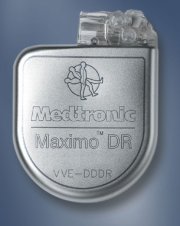Why women may not respond to defibrillation


An ICD monitors the heart and provides an electric shock when needed to set right a fluttering heartbeat. But when Hamid Ghanbari looked at results on 934 female patients, he found no impact on their life expectancy from having them.
It is well known that women of child-bearing age are protected by hormones from the impact of many heart problems. Risks of heart problems in women rise dramatically after menopause.
Men, by contrast, pay inside for their lifetime of smoking, over-eating, stress and laziness from the start of their lives. It may be their heart problems at the time of an ICD implant are quite different.
So this has more to do with the nature of the problem than sex differences. Redberg suggests women are being given ICDs based on an assumption they will work, but their problems aren't being studied closely enough to see whether they will, in fact, work.
More study is needed Ghanbari and Redberg agree, to determine what kinds of heart problems respond well to ICDs and what kind don't, rather than offering any blanket recommendation on sex-based use of the devices.